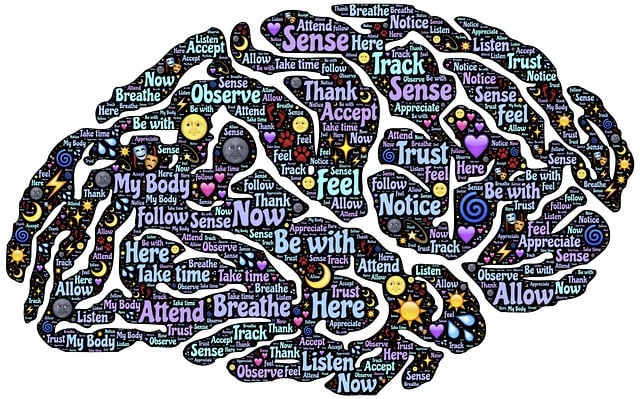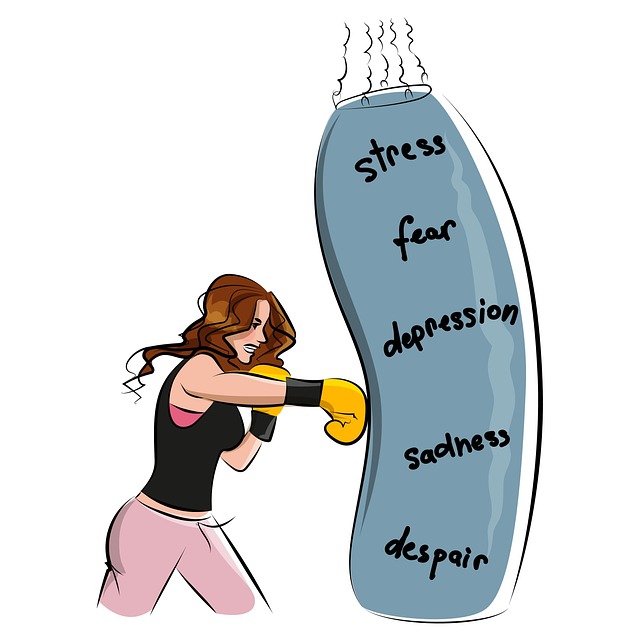Lafayette Depression Therapy prioritizes client safety through comprehensive risk assessment and harm minimization strategies. Therapists identify vulnerabilities like mental health disorders, traumatic histories, or substance abuse to tailor treatment plans. This involves robust safety plans, coping mechanism education, and regular check-ins. By fostering resilience through targeted therapy sessions, the clinic empowers individuals to manage challenges and lead safer, more fulfilling lives. Their evidence-based practices, such as CBT, and collaborations with organizations like the Stress Management Workshops Organization aim to prevent and manage depressive episodes holistically. Continuous evaluation, cultural sensitivity, and dynamic adjustment ensure long-term support for clients' emotional regulation and overall well-being.
Risk assessment and harm minimization planning are vital components of any therapeutic practice, especially in addressing mental health concerns like depression. This article explores these essential strategies through three key sections: understanding risk assessment in therapy, implementing harm minimization strategies, and the specific role of Lafayette Depression Therapy in preventive measures. We also delve into continuous evaluation for long-term client wellbeing.
- Understanding Risk Assessment in Therapy: Identifying Potential Hazards
- Implementing Harm Minimization Strategies: Protecting Client Safety
- The Role of Lafayette Depression Therapy in Preventative Measures
- Continuous Evaluation and Adjustment: Ensuring Long-Term Wellbeing
Understanding Risk Assessment in Therapy: Identifying Potential Hazards

In the realm of therapy, particularly in Lafayette Depression Therapy, understanding risk assessment is paramount to ensuring client safety and effective treatment. Risk assessment involves a thorough examination of various factors that could potentially contribute to adverse outcomes during or after therapeutic interventions. This process aims to identify vulnerabilities, such as existing mental health conditions, past traumatic experiences, or substance abuse issues, which may increase the risk of harm. Therapists must be adept at recognizing these hazards to implement appropriate harm minimization strategies.
By incorporating self-awareness exercises and continually updating their risk assessment skills, mental health professionals can better navigate complex client situations. This includes evaluating not only immediate risks but also long-term factors that might impact a client’s mood management and overall well-being. A comprehensive risk assessment forms the backbone of effective harm minimization planning, allowing therapists to customize treatment approaches for optimal positive outcomes in therapy.
Implementing Harm Minimization Strategies: Protecting Client Safety

Implementing effective harm minimization strategies is paramount in ensuring client safety, particularly within mental health settings like Lafayette Depression Therapy. This involves a multifaceted approach that starts with comprehensive risk assessment—identifying potential risks and vulnerabilities unique to each client. By systematically evaluating factors such as history of self-harm, suicidal ideation, substance abuse, or trauma, healthcare professionals can proactively manage and mitigate risks.
For instance, at Lafayette Depression Therapy, therapists employ tailored interventions based on individual needs. This may include developing robust safety plans, providing education on coping mechanisms, and offering regular check-ins to monitor progress. Additionally, fostering resilience through targeted therapy sessions equips clients with the tools to navigate challenges, thereby enhancing their ability to manage potential risks. By integrating these harm minimization strategies, Lafayette Depression Therapy prioritizes not just treating symptoms but also empowering individuals to lead safer, more fulfilling lives while mitigating the risk of further harm.
The Role of Lafayette Depression Therapy in Preventative Measures

Lafayette Depression Therapy plays a pivotal role in preventative measures for mental health issues, particularly depression. Through tailored interventions, this therapy offers a comprehensive approach to addressing depressive symptoms and fostering resilience. By engaging individuals in evidence-based practices, such as cognitive-behavioral therapy (CBT), Lafayette Depression Therapy equips them with coping mechanisms to navigate stressful situations effectively. This proactive strategy not only aims to alleviate immediate distress but also builds long-term mental wellness.
Moreover, the Stress Management Workshops Organization, recognizing the value of early intervention, collaborates with Lafayette Depression Therapy to develop programs aimed at depression prevention. These workshops focus on teaching stress management techniques, mindfulness practices, and emotional regulation skills, which are crucial components of maintaining good mental health. Combined efforts from Lafayette Depression Therapy and such organizations underscore a holistic approach to mental wellness coaching programs, ensuring that individuals have access to the necessary tools to prevent and manage depressive episodes.
Continuous Evaluation and Adjustment: Ensuring Long-Term Wellbeing

In the context of Lafayette Depression Therapy and beyond, continuous evaluation and adjustment are vital components of any comprehensive risk assessment and harm minimization plan. This dynamic approach ensures that interventions remain effective over time, adapting to evolving individual needs and external factors. Regularly reviewing progress allows mental health professionals to identify emerging risks or changes in patient circumstances, enabling prompt adjustments to treatment strategies. By staying agile, healthcare providers can better support clients’ long-term emotional regulation and overall wellbeing.
Cultural sensitivity in mental healthcare practice plays a significant role in this process. Recognizing the influence of cultural contexts on both mental health experiences and self-care practices, professionals must continually assess and adjust their approaches accordingly. This involves fostering an environment where individuals feel understood and respected, encouraging open communication about unique challenges, and integrating culturally relevant strategies into treatment plans. Such considerations contribute to effective risk management, ensuring that interventions are not only safe but also sensitive and supportive of diverse client populations.
Lafayette Depression Therapy plays a vital role in implementing comprehensive risk assessment and harm minimization planning. By understanding potential hazards, adopting protective strategies, and continuously evaluating client wellbeing, we can ensure safe and effective therapeutic interventions. This proactive approach not only safeguards clients but also fosters long-term mental health resilience.














